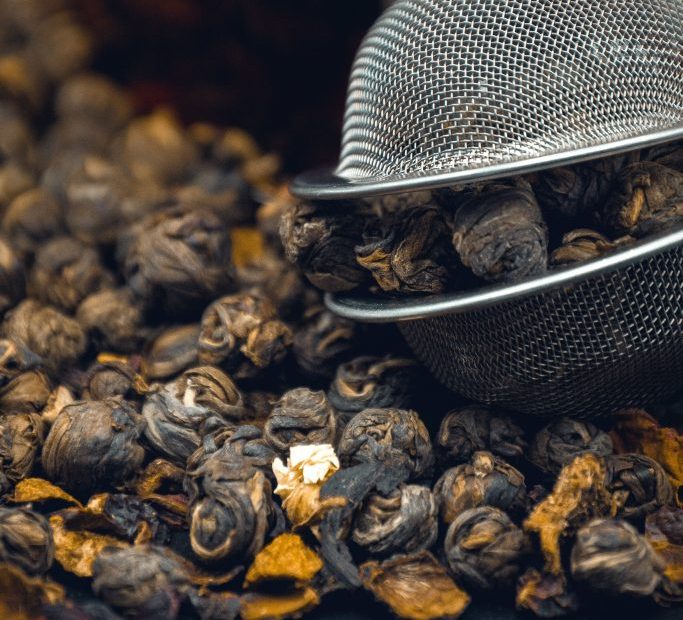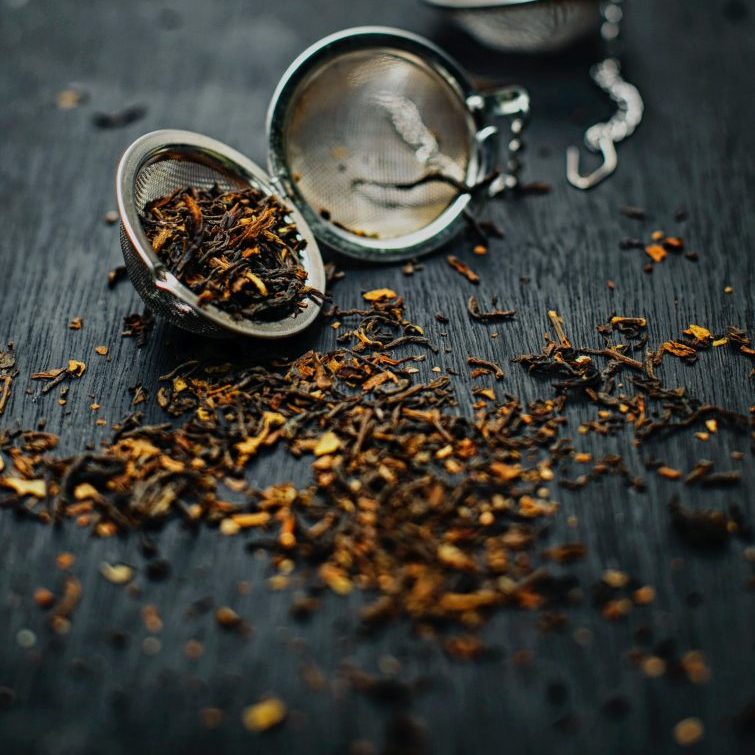In-depth Guide to Golden Monkey Black Tea: Why Is It So Costly?
Golden monkey tea, also called Jin Hou black tea, is one of the most popular hot class tea variants in the world. This premium Chinese tea cultivar achieved second position in the Signature Famous Tea category at the World Tea Championship 2009.
Highly valued for the distinguished gentle, sweet, and mellow-flavored relish in every sip makes the variant a favorite among tea connoisseurs. It is not surprising why the organic black tea with iconic golden tinges comes with a whopping price tag.
If you have never enjoyed a cup of golden monkey tea before, explore some interesting facts about this exotic tea.
Why This Black Tea Cultivar is Called Golden Monkey
There is no specific explanation about why or how this black tea got its name- the golden monkey. According to a popular theory, the tea got its name from the unique pale golden threadlike appearance that resembles the paws of the Golden Monkey species in China.
In ancient times, this tea was consumed by the Chinese landlords and people of the Taipan clan claimed that the beverage accentuates virility and energy, the qualities found in golden monkeys. Some people also said that the tea was picked by golden monkeys from tea plants at a high altitude.
Golden Monkey Black Tea: History and Origins
Black tea is not a popular beverage among natives of China. Yet black tea cultivation was cultivated in Yunnan Province, China about 1700 years. However, the production of jin hou tea started in the region about 300 years ago. This variant is new in the world tea market, gaining popularity among connoisseurs over the past 2 decades.
The golden monkey black tea is extracted from Da Bai Hao (white) tea plants and peer of the Yin Zhen Silver Needle white tea. Only the bud and the first leaf possess the characteristics of black tea.
Jin Hou tea plantation was started in the Fuding tea gardens of Fujian Province in China. Today, commercial growing and processing are done in Fujian and Yunnan provinces. The climatic conditions, nutrient-rich soil with organic components, and high altitude (1200 meters) are ideal for high-quality tea crops.
Flavor and Taste Profile
Golden monkey tea has the most diverse taste profile making every sip an enjoyable experience. Featuring the richness of classic Chinese black teas, the taste and captivating aroma of the Jin Hou tea become intense over time. Possessing gentle, sweet, and honey peach notes, it is low in astringent (as found in Indian black teas).
Take a few initial sips to explore the sweet and malty delights. But as the tea cools down, the fascinating fruity and floral notes reminiscence of fragrant walnut, cocoa, apples, and apricots emerge. At the base, you will enjoy the rich sweetness of a dry-roasted sweet potato.
Extraction and Processing
The secret to the richness of taste and mesmerizing aroma of organic golden monkey tea is attributed to the extraction and treatment.
The golden monkey is harvested in spring by employing the hand-plucking method. Only the bud and the first leaf are carefully hand-picked during the process since this part of the plant is loaded with optimum food value and sweetness. The processed tea also retains the sweet taste of the essential plant nutrients stored at the highest tip of the plant.
The extracted fresh leaves and buds are sun-treated for shrinking. Later the leaves are kept in the open air for oxidation and drying. After processing, the sugary tip containing the bud turns golden while the end is blackish.
How to Brew Golden Monkey Tea
Jin Hou tea loses aroma and essence when brewed at high temperatures. Getting the right temperature allows you to enjoy 3-5 infusions, depending on your preferences. Follow the brewing instructions on the label for the best results if you use tea bags.
For an enticing flavored golden monkey tea, add 2tsp loose leaves to brew 6 ounces of water.
Here is a short brewing guide using loose golden monkey tea leaves from the experts:
- Boil drinking water in an electric kettle/stove
- Allow it to cool till it is 194-205°F*
- For best aroma, put tea leaves in a China-clay teapot
- Add the hot water and cover with the lid
- Steep Jin Hou tea leaves for 2 minutes to get a refreshing taste
Your tea is now ready. No need to add sugar if you enjoy the light honeyed sweetness. For an intense sugary taste, you may add any preferred sweetener (as per taste).
*If you have an electric kettle with temperature settings, adjust the temperature as required.
Golden Monkey Black Tea Recipes
#1. Spicy Coconut Milk Iced Tea
Ingredients
- Golden monkey tea leaves- 2tsps
- Hot Water- 1 cup (200°F)
- Coconut milk- 1tbsp
- Condensed milk- 1tbsp
- Sugar- 2tsp (as per taste)
- Almond powder- 1 pinch
- Cinnamon- ½-inch stick
- Cardamom- 2 pods
- Nutmeg powder- 1 pinch
- Crushed ice- as per requirement
Method
- Use a saucepan to infuse tea leaves with cinnamon, cardamom, and nutmeg powder in hot water. Steep the tea for 5 minutes in the covered pan.
- Strain the tea in a clay pot. Remove the spices and tea leaves using a strainer.
- Add condensed milk, coconut milk, and sugar. Keep stirring until the sugar crystals dissolve in the tea. Use a hand blender to make a frothy mix.
- Fill ½ of the serving glass with crushed ice.
- Pour the tea to cover the ice and garnish with mint leaves.
#2. Mint-Raspberry Flavored Iced Tea
Ingredients
- Water- 1 ½ cup (room temperature)
- Jin Hou tea bags- 2
- Honey- as per taste
- Raspberries- 4
- Mint leaves- 6
- Mint sprigs- 1
- Ice cubes- 4 per glass
Method
- Take drinking water in a mason jar. Infuse tea bags, thinly sliced raspberries, and mint leaves.
- Put the mason jar in the refrigerator for at least 6 hours.
- Strain the tea in a serving glass.
- Add honey to the flavored tea and mix well
- Put ice cubes and garnish with a mint sprig
Note: Take a sip of the tea before adding sugar or honey to golden monkey tea. The tea leaves give a floral sweet note after brewing. If you have sugar/honey syrup, use this as a sweetener for making ice teas.

